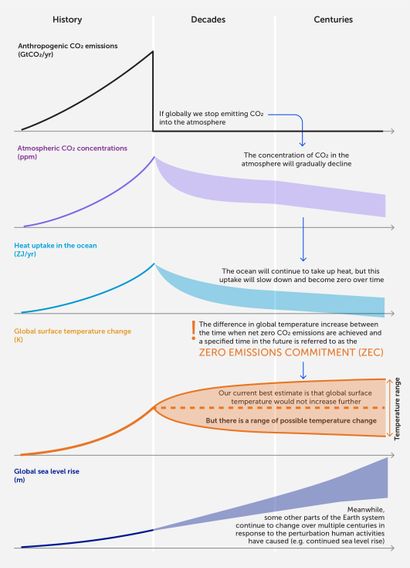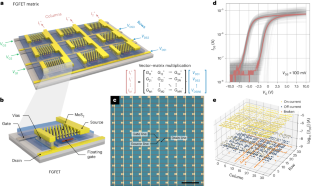2023-11-14 インペリアル・カレッジ・ロンドン(ICL)
◆研究では、ネットゼロ後の気候モデリングの不確実性を示し、地球温暖化リスクを長期的に予測するための枠組みを提案しています。ネットゼロ後も地球温暖化が続く可能性があるため、二酸化炭素排出を急速に削減してネットゼロを達成し、気候被害を未来の世代に防ぐための慎重なアプローチが必要です。
<関連情報>
- https://www.imperial.ac.uk/news/249475/emissions-plans-must-consider-risk-global/
- https://www.frontiersin.org/journals/science/articles/10.3389/fsci.2023.1170744/full
ゼロ・エミッションの約束と気候安定化 The Zero Emissions Commitment and climate stabilization
Sofia Palazzo Corner,Martin Siegert,Paulo Ceppi,Baylor Fox-Kemper,Thomas L. Frölicher,Angela Gallego-Sala,Joanna Haigh,Gabriele C. Hegerl,Chris D. Jones,Reto Knutti,Charles D. Koven,Andrew H. MacDougall,Malte Meinshausen,Zebedee Nicholls,Jean Baptiste Sallée,Benjamin M. Sanderson,Roland Séférian,Merritt Turetsky,Richard G. Williams,Sönke Zaehle,Joeri Rogelj
Frontiers Publised:14 Nov 2023
DOI:https://doi.org/10.3389/fsci.2023.1170744

Abstract
How do we halt global warming? Reaching net zero carbon dioxide (CO2) emissions is understood to be a key milestone on the path to a safer planet. But how confident are we that when we stop carbon emissions, we also stop global warming? The Zero Emissions Commitment (ZEC) quantifies how much warming or cooling we can expect following a complete cessation of anthropogenic CO2 emissions. To date, the best estimate by the Intergovernmental Panel on Climate Change (IPCC) Sixth Assessment Report is zero change, though with substantial uncertainty. In this article, we present an overview of the changes expected in major Earth system processes after net zero and their potential impact on global surface temperature, providing an outlook toward building a more confident assessment of ZEC in the decades to come. We propose a structure to guide research into ZEC and associated changes in the climate, separating the impacts expected over decades, centuries, and millennia. As we look ahead at the century billed to mark the end of net anthropogenic CO2 emissions, we ask: what is the prospect of a stable climate in a post-net zero world?
Key points
- Substantial uncertainty remains in both the sign and magnitude of the Zero Emissions Commitment (ZEC): the expected additional change in global surface temperature once we achieve net zero CO2 emissions.
- Uncertainty in ZEC has implications for the remaining carbon budget to stay below the temperature limits of the Paris Agreement: a positive ZEC reduces the remaining budget; a negative ZEC opens the door for more ambitious targets or more time to reach net zero.
- The prospect of additional warming after net zero is both plausible and significant, with a chance that ZEC could exceed 15% of total global warming.
- While a ZEC of 0 means no further change to global surface temperatures, other aspects of the Earth system, such as sea levels, will continue to change in a net zero world due to warming realized previously. These changes should be factored into the assessment of safe warming limits and adaptation plans.
- Current climate models do not adequately represent the full scope of complex and interdependent Earth system processes that determine ZEC. We present a structure for quantifying uncertainty in ZEC and propose a roadmap for future research into quantifying ZEC and reducing its uncertainties.



